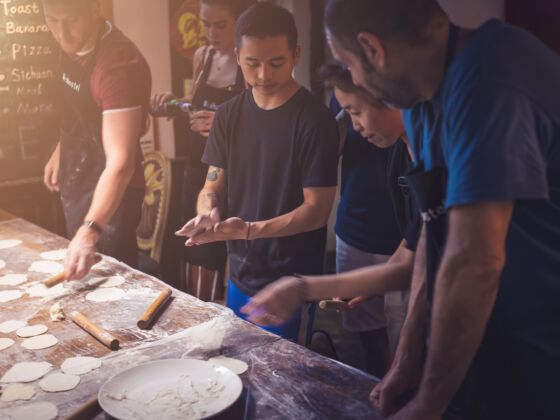YOU CAN CONTROL how often you move from city to city and where you stay en route, and of course you can restrict the cost and number of your daytime activities as needed.
But you have to eat, and that’s not going to change no matter how much cash is left in your account.
The first time I went traveling, in Australia, I stuck to my budget religiously – which was great. But in doing so, I subsisted almost entirely on Styrofoam cups of noodles and the occasional can of soup. Not so great.
